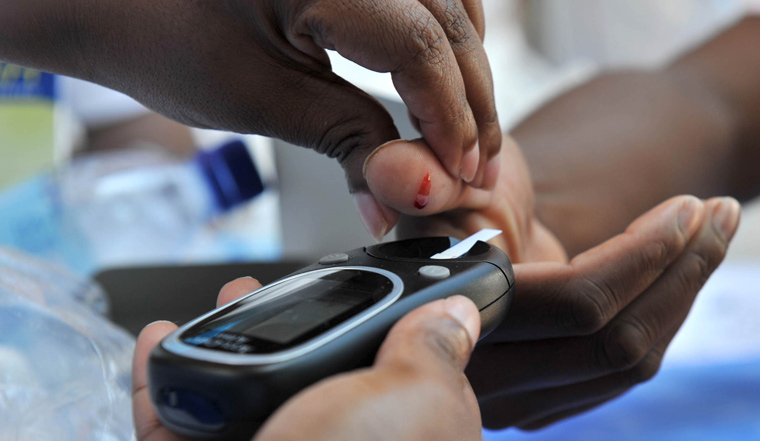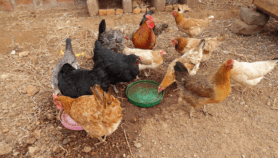09/04/19
Diseases deal massive blow to productivity in Africa

Send to a friend
The details you provide on this page will not be used to send unsolicited email, and will not be sold to a 3rd party. See privacy policy.
[NAIROBI] If Africa hopes to save the current massive annual losses in productivity due to diseases, it needs to urgently improve efficiency in health spending, an expert says.
According to a new WHO Regional Office for Africa report that was based on data from 47 countries, Africa loses about US$2.4 trillion of the region’s total value of goods produced and services provided annually because of diseases that afflict people in these nations.
“Noncommunicable diseases are the largest cause of productivity losses in the African region,” says the report. “Approximately 47 per cent of the total productivity cost of illness could be avoided (or spared) in 2030 if the SDG targets related to those health conditions are fully achieved.”
“It is not just about more money for the health we need. It is also about more health for the money we need.”
Grace Kabaniha, WHO Regional Office for Africa,
Grace Kabaniha, a health economist with the WHO Regional Office for Africa, says spending on people’s medical well-being is a necessity for Africa since it is an investment with huge returns for the region.
“It is not just about more money for the health we need,” explains Kabaniha in an interview with SciDev.Net last week (4 April). “It is also about more health for the money we need. It is, therefore, important to improve efficiency in health spending. Achieving universal healthcare is good for the Sustainable Development Goals.”
The WHO report, which resulted from the analyses of the WHO and International Monetary Fund databases for the year 2015, was launched at the second WHO Africa Health Forum in Cape Verde last month 26–28 March).
“The researchers used a human capital approach to estimating the losses by attaching a monetary value in terms of lost labour productivity because someone is sick or dies before their time. The estimate for ill-health was based on an approach developed in the 1990’s, to estimate the quality adjusted health loss,” according to Kabaniha.
The broad objective was to make case for commitment to investment and implementation of the SDG three — ensure healthy lives and promote well-being for all at all.
Kabaniha explains that noncommunicable diseases including diabetes and hypertension account for 37 per cent of burden of disease because of marked reduction of infectious diseases since 2000 due to interventions such as huge global investments in HIV/AIDS, tuberculosis and malaria since 2003 that were the largest drivers of illness and premature death.
To address the problem, she says, there is a need to implement people-centred health services with a focus on a primary health care approach, which is the most cost-effective, effective and affordable approach for improving service access, quality and equity in health in Africa.
According to the report, the Democratic Republic of the Congo, Ethiopia, Nigeria, South Africa and Tanzania together contributed to almost 50 per cent of the total years lost in healthy life in the WHO Africa region.
Joseph Wang'ombe, a professor of health economics at Kenya’s University of Nairobi, says that the magnitude of the production cost revealed in the report is a clear wake up call to African policymakers to quickly implement interventions such as capacity building and infrastructural developments to effectively address the current massive annual losses in productivity due to diseases.
Wang’ombe adds that policymakers need to increase expenditure on preventive health services. It is also important for them to work closely with monitoring and evaluation experts to gauge the possible outcomes of interventions as well as making clear choices for effective, affordable and accessible healthcare provision to the people.
This piece was produced by SciDev.Net’s Sub-Saharan Africa English desk.
References
A heavy burden: the productivity cost of illness in Africa WHO Regional Office for Africa, 2019)













